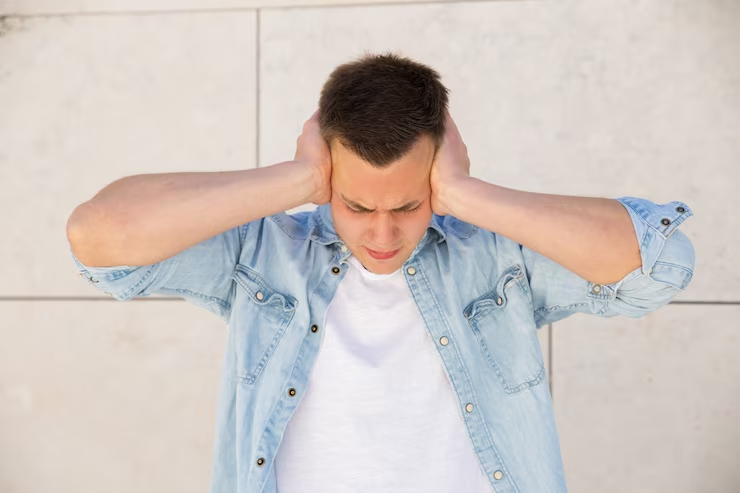Sleep is a vital aspect of our overall health and well-being, allowing our bodies and minds to rest, repair, and rejuvenate. However, in South Africa, as in many other parts of the world, noise pollution has become a pervasive issue that can significantly disrupt sleep patterns and negatively impact our health. Whether it’s traffic noise, construction activities, loud music, or other sources of noise, the constant exposure to unwanted sounds can have a profound effect on the quality and quantity of sleep we get. In this article, we will explore the impact of noise pollution on sleep quality in South Africa and discuss strategies to mitigate its effects.
- Sleep Disturbances: Noise pollution can cause frequent sleep disruptions, leading to fragmented sleep patterns. Even if you manage to fall asleep, sudden loud noises or continuous background noise can jolt you awake or prevent you from entering deeper stages of sleep. These interruptions can result in poor sleep quality and leave you feeling tired and groggy the next day.
- Increased Stress and Anxiety: Persistent exposure to noise pollution can trigger stress responses in the body, leading to increased levels of stress hormones like cortisol. This prolonged stress response can contribute to feelings of anxiety, irritability, and restlessness, making it harder to relax and fall asleep. The constant anticipation of disruptive noises can create a cycle of anxiety that further exacerbates sleep difficulties.
- Impaired Cognitive Function: Quality sleep is essential for cognitive functioning, including memory consolidation, learning, and problem-solving abilities. Noise pollution can interfere with these cognitive processes, leading to difficulties in concentration, reduced alertness, and impaired performance during the day. This can have significant implications for productivity and overall well-being.
- Health Consequences: Sleep deprivation caused by noise pollution is associated with various health consequences. It can weaken the immune system, making individuals more susceptible to illnesses. Chronic sleep disturbances are also linked to an increased risk of cardiovascular problems, such as hypertension, heart disease, and stroke. Additionally, inadequate sleep can contribute to mental health issues like depression and anxiety.
Strategies to Mitigate the Effects of Noise Pollution on Sleep Quality:
- Soundproofing: Consider implementing soundproofing measures in your home, such as installing double-glazed windows or using sound-absorbing materials to minimize external noise. Carpets, curtains, and acoustic panels can help reduce the impact of noise intrusion.
- White Noise or Ambient Sounds: Using white noise machines, fans, or soothing ambient sounds can create a consistent background noise that masks or distracts from disruptive sounds. These calming sounds can help promote relaxation and mask intermittent noises that may disturb sleep.
- Earplugs or Noise-Canceling Headphones: Wearing earplugs or using noise-canceling headphones can provide a physical barrier against external noise, allowing for a quieter sleep environment. They can be particularly helpful for individuals who are more sensitive to noise disturbances.
- Establish a Bedtime Routine: Create a relaxing bedtime routine to signal to your body that it’s time to unwind and prepare for sleep. Engage in activities such as reading, taking a warm bath, or practicing relaxation techniques to reduce stress and promote a calmer state of mind.
- Seek Quieter Accommodations: If you have the flexibility to choose your living arrangements, consider opting for quieter locations away from major roads, construction sites, or other sources of noise pollution. Research the neighborhood and potential noise sources before selecting a residence.
- Advocate for Noise Reduction: Engage with local authorities and communities to advocate for noise reduction measures. Encourage the enforcement of noise regulations and the implementation of urban planning strategies that prioritize noise control, such as sound barriers and zoning restrictions.
- Use Smartphone Apps or Sleep Gadgets: There are various smartphone apps and sleep gadgets available that offer soothing sounds, relaxation exercises, or even noise monitoring features. These tools can help track your sleep patterns, provide relaxation techniques, and create a more peaceful sleep environment.
- Practice Stress Management: Since noise pollution can induce stress and anxiety, it’s essential to incorporate stress management techniques into your daily routine. Regular exercise, meditation, deep breathing exercises, and mindfulness practices can help reduce stress levels and promote better sleep.
- Legal Actions and Community Involvement: If noise pollution persists despite your efforts, consider exploring legal actions or working with community organizations to address the issue. Reporting excessive noise disturbances to local authorities can help raise awareness and prompt action.
In conclusion, noise pollution can have a significant impact on sleep quality in South Africa, affecting physical and mental well-being. By implementing strategies to mitigate noise disturbances and promote a peaceful sleep environment, individuals can improve their sleep quality, enhance overall health, and achieve a better quality of life. Advocating for noise reduction and raising awareness about the importance of quiet environments are crucial steps toward creating healthier communities with better sleep environments for all.










